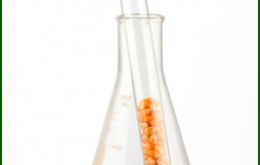MercoPress. South Atlantic News Agency
Economy
-
Tuesday, August 21st 2012 - 20:07 UTC
US families dump 40% of their food every year, says environmental group

Americans throw away nearly half their food every year, waste worth roughly 165 billion dollars annually or 2.275 dollars per average family, according to a study released on Tuesday by the Natural Resources Defence Council
-
Tuesday, August 21st 2012 - 19:07 UTC
US and Japan file complaints at WTO against Argentine import licensing rules

The United States and Japan launched on Tuesday complaints against Argentina at the World Trade Organization (WTO), alleging that its import licensing rules discriminate against foreign goods. The two complaints follow similar litigation brought by the European Union in May.
-
Tuesday, August 21st 2012 - 04:27 UTC
Brazil’s federal staff several months strike extends to the highways police

The Brazilian highways patrol police in several states joined the national strike of federal workers that are protesting for higher salaries and better working conditions. The strike of the National Federation of Highway Police (Fenapre) was decided unanimously over the weekend effective Monday.
-
Tuesday, August 21st 2012 - 02:56 UTC
Argentina hosted 5.7m tourists in 2011; iconic names play a significant role

Argentina has become the most visited country in South America with arrivals in 2011 reaching almost six million tourists, said Leonardo Boto head of the country’s National Tourism Promotion Institute, Improtur.
-
Tuesday, August 21st 2012 - 02:25 UTC
US Court rejects Argentina sovereign immunity argument; banks must show documents

Argentina lost a bid on Monday to prevent bondholders from obtaining documents from two banks about the country's assets outside the United States. A three judge panel of the 2nd US Circuit Court of Appeals in New York said in an opinion that the Argentine government could not prevent a lower court's order forcing the banks to produce the documents.
-
Tuesday, August 21st 2012 - 01:57 UTC
Re-re-election of Cristina Fernandez fully integrated to the political agenda of Argentina

Several groups allied to Argentine president Cristina Fernandez are actively promoting a constitutional review that would allow re-election for a third consecutive four year mandate. The last Argentine constitutional review was in 1994 when the four-year mandate was introduced with the possibility of an only immediate re-election, thus modifying the six year mandate but with no re-election.
-
Monday, August 20th 2012 - 21:14 UTC
Insufficient harvests and soaring prices anticipate another world food crisis

With droughts parching farms in the United States and near the Black Sea, weak monsoon rains in India and persistent hunger in Africa's Sahel region, the world could be headed towards another food crisis, experts say.
-
Monday, August 20th 2012 - 21:10 UTC
Royal Navy presents computer images of Type 26 combat ship planned for 2020

The latest design of the Royal Navy's Type 26 Global Combat Ship (T26 GCS), the next generation of warships, was unveiled on Monday. The UK Ministry of Defence has released images showing the basic specification of the T26 GCS, which is a significant milestone in the development of this program.
-
Monday, August 20th 2012 - 20:55 UTC
Falklands appoint landscape impact assessment consultant for new harbour development

The Falkland Islands government has appointed Macclesfield based consultancy Tyler Grange to undertake a landscape and visual impact assessment for a new harbour development near the capital Stanley.
-
Monday, August 20th 2012 - 20:45 UTC
Falklands improves livestock haulage to ensure steady supply to meat plant

Falkland Islands livestock haulage should become easier in the forthcoming season with the introduction of suitable sized crates and equipment for both East and West Falkland, reports the Penguin News.
